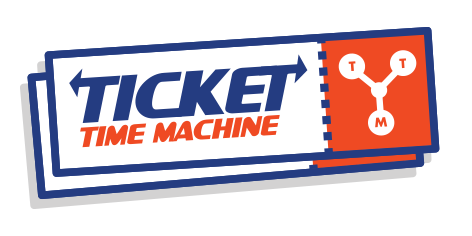
That means print-at-home, tickets printed on paper stock and even mobile phone tickets that rely on barcodes will largely become a thing of the past as ticketing companies (namely Ticketmaster), concert promoters and sports teams convince, cajole and eventually force fans entering their events to use digital tickets that sit within mobile apps, or utilize some form of RFID wristband.
Will there be growing pains? Of course! Network outages, technical breakdowns and the occasional system-wide crash will invariably leave fans standing outside of buildings angry and frustrated, and local media will pick up on these outages and fan the flames of discontent, but that’s all to be expected when one ushers in such major technological change.
So why do we think the barcode is eventually going to the way of the fax machine.? Here’s what we know:
Rapino Says Barcodes Are Dead
If there’s one guy who knows the future of Live Nation and Ticketmaster it’s the company’s CEO Michael Rapino, who says the barcode’s days are numbered.
“I think if you look at the industry in general, at some point, the barcode’s going to go away,” Rapino told Goldman Sach’s Drew Borst during the investment bank’s (unfortunately named) Communacopia Conference in New York.
For starters, barcodes don’t tell you much about who is in the building for the show, just who bought the tickets, and that person could be a parent, a friend or even a scalper. Rapino and Ticketmaster want more people entering the arena to have their app on their phone and use it to access the building.
“You should be walking in to the arena and (Ticketmaster) knows who you are and captures you,” he said. “And then when you send those 2 tickets to your sister and brother, we can capture that data. The customer becomes known to us.”
It’s a system that fits nicely with Ticketmaster’s Verified Fan program and grants artists more control over how their tickets are purchased and ultimately resold. It allows artists to “decide what (fans) can do with that data ticket. Can you resell it? What can you resell it for? Who can you resell it to? And that’s what (the artist) ultimately wants, right?”
Rapino explained “We believe Springsteen owns the ticket. We believe the Rangers own the ticket. They should be able to decide what pricing it is, how it’s distributed and how it’s monetized,” and said the barcode system “shouldn’t be that disconnected from the content strategy.”
“The minute the barcode goes away and you become an ID, date, signature, log, that’s tied to that seat, then the content starts to have new controls,” he said.
The NFL will help force a deal between StubHub and Ticketmaster for resale
Hypothetically a smart phone ticket, would be difficult to resell on a site like StubHub, but the digitization of tickets doesn’t mean the end of the resale market.
In fact, digitization could strengthen the secondary market and make it more secure. The question is whether Ticketmaster and StubHub can actually work together?
When the National Football League’s ticketing deal with Ticketmaster ends in 2018, the new contract will likely include some component of cooperation between the two companies.
Why? Because the NFL’s exclusivity deal with Ticketmaster never really worked. Neither side could enforce exclusivity on TM’s secondary market, tons of tickets still wound up on StubHub and the NFL realized it was leaving too much money on the table.
“Most of the leagues have done this — gone out and said we’d like to figure out how to monetize the secondary,” Rapino said.
As we first reported in May, requiring Ticketmaster to facilitate transactions on StubHub could mean more revenue for the NFL and ultimately a better experience for fans. While Ticketmaster might not be crazy about working with their rivals at StubHub, they won’t be on the hook for a large upfront payment to lock in secondary ticket rights that were never actually exclusive. The NFL doesn’t want to lose Live Nation either because of their joint concert business.
“We put 100 and something stadium shows in NFL’s backyard this year with Metallica and U2 (and Coldplay and Guns N Roses),” Rapino said.
“So we probably made the NFL owner as much money in the off-season,” he said. “So we think we’re a good partner. So we think — we’re confident we’ll continue to have a high renewal rate with arenas and NFL stadiums. ”
